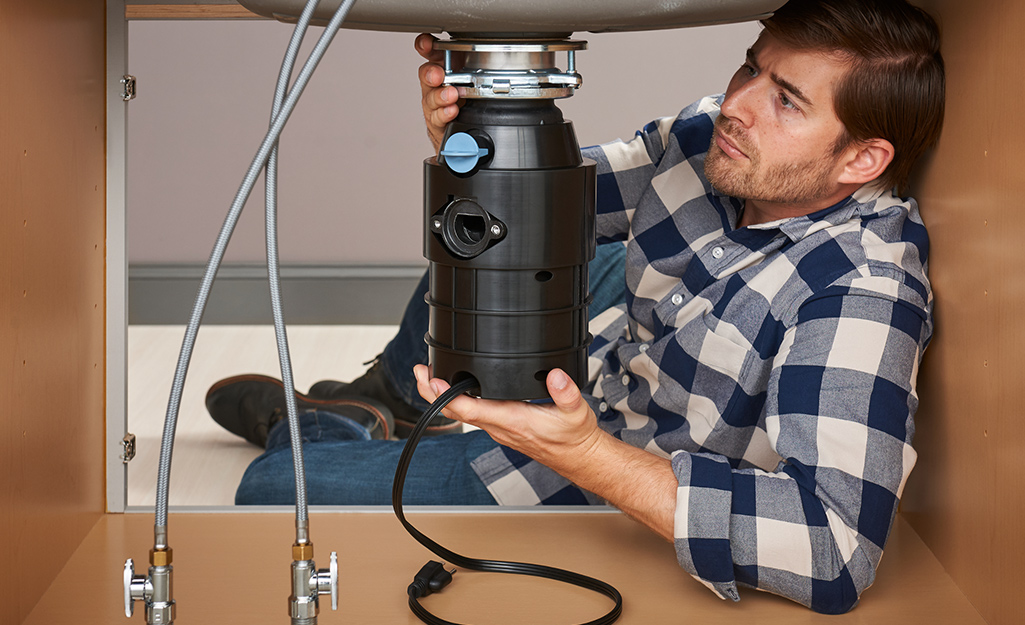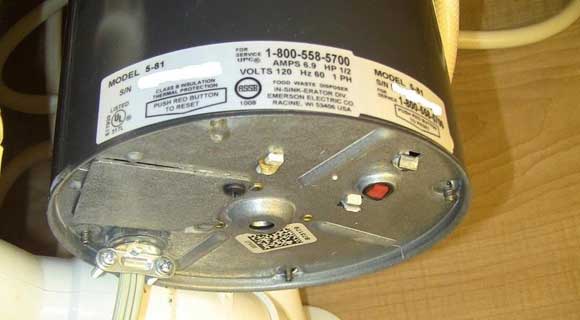Your Guide to Resolving a Leak in Your Garbage Disposal
Your Guide to Resolving a Leak in Your Garbage Disposal
Blog Article
How do you actually feel about How to fix a pretty consistent leak from my garbage disposal?

Garbage disposals are important kitchen area appliances that aid in disposing of food waste efficiently. However, a leaking waste disposal unit can be a frustrating and unpleasant trouble to handle. Thankfully, lots of leakages can be fixed conveniently with a few easy actions. In this post, we will go over just how to deal with a dripping garbage disposal properly.
Intro
Waste disposal unit are mounted under cooking area sinks and are created to shred food waste into smaller sized pieces, permitting it to pass through the plumbing system quickly. While these devices are normally reputable, leaks can happen over time because of deterioration, loose connections, or damages to the device.
Step-by-Step Overview to Dealing With a Dripping Waste Disposal Unit
Shut off the Power
Before trying any fixings, guarantee that the power to the waste disposal unit device is turned off to prevent the danger of electric shock.
Find the Leakage
Recognize the specific area of the leak and identify the cause
Tighten Connections
Use a wrench to tighten any kind of loose links in between the disposal system and the plumbing system.
Change Seals or Gaskets
If the leakage results from worn seals or gaskets, eliminate the old elements and replace them with new ones.
Patching Splits or Openings
For cracks or openings in the disposal device, use epoxy or an ideal patching product to seal the damaged location.
Recognizing the Source of the Leakage
Prior to attempting to take care of a leaking garbage disposal, it is vital to identify the resource of the leak. This can generally be done with aesthetic assessment or by performing easy examinations.
Visual Inspection
Check the waste disposal unit unit carefully for any indications of water leak. Pay close attention to areas around seals, gaskets, and connection factors.
Testing for Leakages
One means to test for leaks is by running water via the disposal system and checking for any kind of visible indicators of leak.
Usual Causes of Leaks in Waste Disposals
Worn Seals and Gaskets
Seals and gaskets play an important duty in protecting against water from dripping out of the waste disposal unit. Gradually, these elements can degrade, bring about leaks around the disposal unit.
Loose Links
The connections in between the garbage disposal and the pipes system can end up being loosened over time, creating water to leak out throughout operation.
Fractures or Openings in the Disposal Unit
Physical damages to the waste disposal unit, such as cracks or openings in the real estate, can also result in leaks.
Devices and Products Needed for Repairing a Leaking Waste Disposal Unit
Prior to starting the repair work procedure, collect the essential tools and products, consisting of a screwdriver, flexible wrench, plumbing professional's putty, replacement seals or gaskets, and epoxy or patching material for fixing fractures or openings.
Examining the Garbage Disposal After Repair
As soon as the repair work is complete, evaluate the garbage disposal by running water through it to make sure that the leakage has been fixed.
Preventive Maintenance Tips to Stay Clear Of Future Leaks
To avoid future leaks, it is essential to carry out regular upkeep on your waste disposal unit. This consists of keeping it tidy, preventing placing non-food products or hard things down the disposal, and regularly looking for leaks or various other problems.
Conclusion
To conclude, fixing a dripping garbage disposal is a reasonably simple procedure that can be completed with basic devices and materials. By adhering to the actions laid out in this write-up and practicing precautionary upkeep, you can keep your garbage disposal in good working problem and avoid expensive fixings in the future.
What to Do About a Leaking Garbage Disposal
A leaking garbage disposal often goes unnoticed until you confront a sopping cabinet, a foul-smelling puddle, or an audible drip-drip-drip from the unit. The fix can be frustrating, too, because the leak can stem from a number of components in the system. Fortunately, with a little sleuthing, you can zero in on the leak and—depending on the exact location—stop the icky oozing and repair the component that caused it. Worst case scenario, if it turns out that the garbage disposal must be replaced, installing a new one is a reasonable do-it-yourself task for those with basic plumbing skills. Read on to keep the cash you’d otherwise hand over to a pro.
Prepare to find the leak
Prior to testing the garbage disposal for leaks, unplug it at the wall outlet and turn off the power from the breaker box to prevent electrical shock. Then insert a watertight sink stopper into your sink drain and wipe the unit dry with a clean cloth. In any handy container, mix a few drops of food coloring into a few cups of water, and pour the dyed water onto the sink stopper to help you locate the leak.
Investigate the source
the top, where the disposal meets the sink drain the side, where the dishwasher hose or main drain pipe connects to the disposal or the bottom of the unit Inspect each of these locations while gliding a light-colored rag over the unit; the dyed water will readily show on the rag and reveal the location of the leak. If a leak isn’t immediately apparent, remove the sink stopper and pour a few more cups of dyed water down the sink drain, then check for leaks again. Leaks near the top of the unit are more likely to show themselves while the sink is plugged, while side and bottom leaks are more noticeable while the sink is unplugged.
The metal sink flange that sits directly inside the sink drain is typically sealed around the top with plumber’s putty (a clay-like sealant) and then secured from under the sink with bolts. If the plumber’s putty deteriorates, or the bolts loosen, the flange can no longer form a watertight seal between the sink drain and the disposal—which could cause a leak at the top of the unit.
To reseal the leaky flange, you must first detach the garbage disposal. Start by loosening the screws securing the main drain pipe to the disposal, then loosen the screws in the metal clamp securing the dishwasher hose to the disposal and detach the drain pipe and dishwasher hose from the disposal. Loosen the screws in the mounting ring that connects the disposal to the metal mounting assembly beneath the sink, then pull down the disposal and carefully set it on a clean, dry surface. Loosen the bolts in the mounting assembly with a wrench, then pull down the mounting assembly and set it near the disposal.

I hope you enjoyed our piece about The Handy Guide To Fixing Your Garbage Disposal Leaking. Thanks a lot for spending some time to read our article. Sharing is good. Helping others is fun. We recognize the value of reading our article about Why Is My Garbage Disposal Leaking From the Bottom?.
Click On This Link Report this page